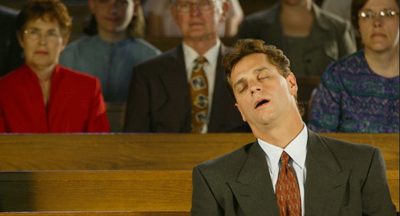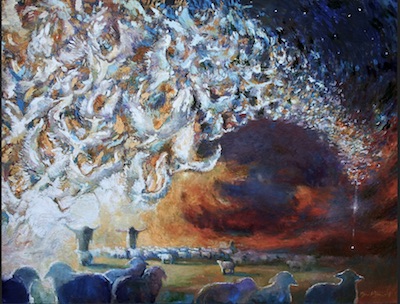
I counsel with people who often are frustrated with the lack of change in their lives. They have forever struggled with a temperament, a habit, or a hurtful style of relating. Yet, God has never changed them. They have prayed . . . somewhat . . . well, sort of . . . I mean, they have been praying about it for years! They have agonized. They have been serious; they have given up; they have taken their complaint back to God; then given up, again.
Why does God seem elusive to us? Why does it appear He is never answering our prayers for change? I mean, isn’t that the whole point of Christianity that we would change?
Maybe there’s a hint of help in John 5. Remember when Jesus and his disciples came to the Pool of Bethesda? Verse 5 tells us that a man had been there for thirty-eight years waiting to get healed! The Greek word that described this man’s sickness, however, is the same word that is also used to describe a person who is merely weak, feeble, or lacking strength. Though it can be a word to identify a disease, it is also a word that describes the mere physical fatigue and emotional feebleness that might remain after a prolonged sickness or tribulation.[i]
Here’s the point. It is very possible that this man did not have a physical disease. Rather, he was suffering with some kind of emotional and mental weakness that had lingered into a physical powerlessness. Here’s why we think this. After Jesus heals this man He tells him, in verse 14, that he has been sinning and he needs to stop! What was his sin? Apparently, the man had taken such a posture of dependency and victimhood that he had grown weak and feeble. He was so emotionally and mentally broken, that it resulted in a loss of physical strength, too. He was acting the victim, and choosing to give up on faith. Because of his unbelief, he had become mentally and emotionally infirmed and physically dependent on others.
Jesus asks this man, “Do you want to get well?” It is plausible that Jesus could “see” that this man was enjoying his status as a victim. Perhaps he did not want to get well. For as C.S. Lewis has pointed out,
“Before we can be cured we must want to be cured.
Those who really wish for help will get it;
but for many people even the wish is difficult.
It is easy to think that we want something when we do not really want it.”
I think this spiritual fatigue with concomitant physical weakness is very common among us in the church. We get so defeated by our stubborn strongholds that we can grow spiritually lethargic, half-praying, but believing that God will never change us. For years! Then we can grow so emotionally and mentally weak that we lose all physical energy about the matter.
The man wanted healing, yet there also was a part of him that had never known anything else but being a needy victim. Perhaps Jesus was really asking, “Are you willing to give up the identity of “victim,” and the easy life of weakness and dependency? Are you ready to stand up in faith, and walk into spiritual maturity, no matter how painful at first?”
Jesus didn’t wait for an answer. He said to the man, “Arise, take up your pallet, and walk.” The man got up. He was “healed!” Jesus did not lay hands on the man or pray over him. He spoke to the mental and emotional condition, because the mind and the emotions will dictate our behavior. Jesus addressed the man’s mental and emotional volition, and his paralyzed will. The man responded in faith by standing and walking.
If you feel that God is elusive, then maybe you have been passive in a victim mind-set for so long, that you have lost your spiritual strength to get up and walk? I would exhort you to Give up. Get up. Start walking.
Give up! Because you have no strength in yourself, anyway.
Get up! Present yourself to God as He describes you: alive from the dead (Rom 6:13). Only you determine whether you will be filled with The Spirit, be strengthened by His grace, and walk in authority over your lethargy. Get up! and present yourself to The Holy Spirit. Do it multiple times a day if necessary.
Start walking! Because Jesus is living in you with Resurrection Power!
-Carter
[i] This same Greek word is found in the name of a disorder of the body where muscles become fatigued and weak, and in some cases paralyzed: Myasthenia gravis (from Greek μύς “muscle”, ἀσθένεια “weakness”) an autoimmune neuromuscular disease leading to fluctuating muscle weakness and fatigue.
C.S.Lewis quote is from Mere Christianity,

